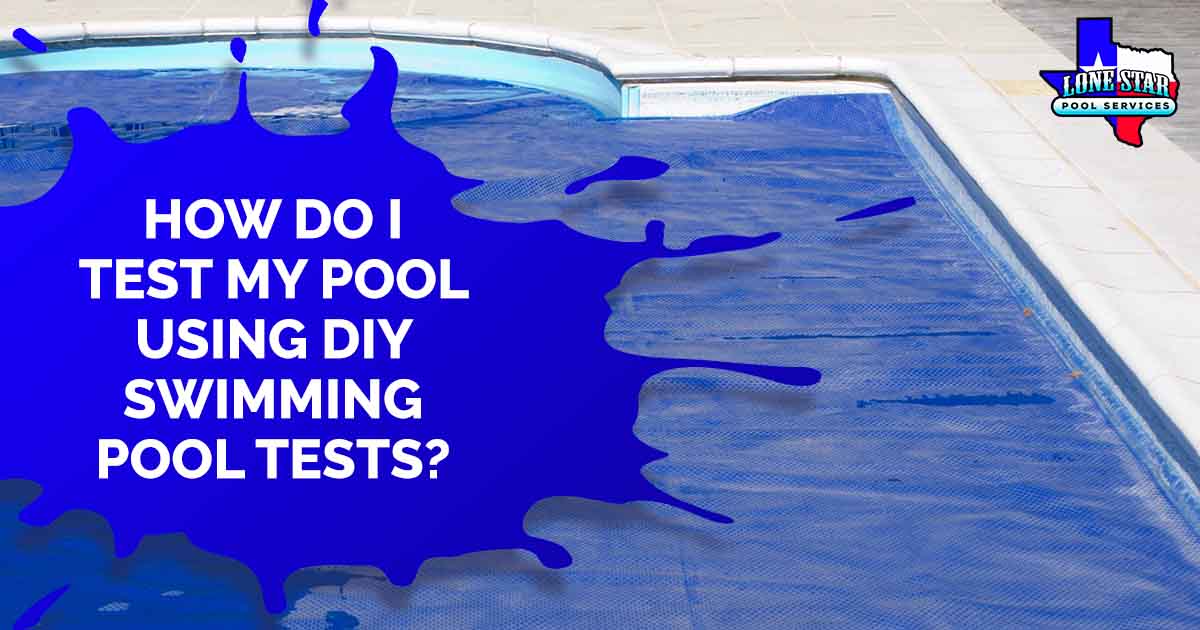There are a bunch of swimming pool testing kits on the market, but did you know you could make DIY swimming pool tests yourself? It’s true. You can save yourself quite a bit of money going the DIY route rather than shelling out the money for a premade kit. In many cases, a DIY swimming pool test kit can be just as effective as a premade one. However, you will need some swimming pool knowledge before going out to make your own.
DIY Swimming Pool Tests: Where to Begin
It may seem like a daunting task to create DIY swimming pool tests, but it’s quite simple when you have the knowledge of exactly what you need to test. There are four things most swimming pools need tested on a regular basis. The first is pH. If you have had a swimming pool for a while, you know the importance of keeping the proper pH. A pool with incorrect pH level can be irritating to people who swim in it and can even promote the growth of bacteria. The next thing you will need to test is chlorine levels.
Like pH, proper chlorine levels will make sure nothing nasty is growing in your pool’s water. Too much chlorine, on the other hand, can actually be damaging to the skin. Next, you will need to test the alkalinity level. You can view alkalinity as a pH stabilizer. It helps keep your pool’s pH in the right place for a longer time. Finally, you will need to test water hardness. A water hardness test measures the amount of calcium in your pool. Excess calcium can cause scale build up and even damage your pool’s pumping system.
What to Gather for Testing Time
Gathering the supplies for DIY swimming pool tests may seem difficult, but now that you know what you’re testing it’ll be a breeze. Lone Star Pool Services suggest purchasing a small container to hold all your supplies once you finish. A small, plastic tackle box is perfect for the job. Since you need to test pH, you’ll need to purchase some pH testing strips. You can find these in hardware stores for cheap. Plus, they come in packs that’ll give you 100’s of tests. Next, you’ll need a chlorine tester.
You can go two routes here. The first option is to purchase a liquid testing kit. For these kits, you’ll need to scoop up some of your pool’s water and drop a chemical in it. If this doesn’t appeal to you, you could go the technology route. You can purchase a device that you stick in water that will read chlorine levels. Choose this one if you want a longer lasting option. Next, you’ll need to test alkalinity.
Unfortunately, there’s no way getting around buying a premade kit for this. Testing alkalinity needs a lot of chemicals. Fortunately, there are many options available. Finally, you’ll need to test pool water hardness. Like pH, you can buy strips for this. There are liquid tests, but if you want to save room and money, we suggest going the strip route. Now, you can keep all your tests in a small plastic tackle box to keep them organized and ready to use.
How Often Do I Need to Test?
Now that you’ve assembled your DIY swimming pool tests, you need to know when to use them. This is a little tricky, but it mostly depends on how much you use your pool. A good rule of thumb is, the more often you use your pool, the more often you’ll need to test the water. However, this only applies for pH and alkalinity levels. Maintaining the proper pH of pool water is the most important factor in its health so testing pH and alkalinity as often as possible is necessary.
As for chlorine and water hardness, you should check those at least one a month or as often as once every two weeks. You should also try to check all of your pool’s levels before opening and closing. This will ensure your pool is safe to swim in though it may have been stagnant for a while.
How to Adjust the Levels After Using DIY Swimming Pool Tests Come Back
Creating DIY pool tests are only part of the battle for clean water. Testing gives you the information you need to adjust the levels of chemicals in your pool. For that, you will need more supplies. Luckily, pool chemicals are readily available all around and are relatively inexpensive long-term. We recommend buying bulk chemicals because it’ll save you money instead of buying small amounts of them at once.
It’s important to note that some pool chemical can go bad if left in the elements. Pool chemicals that go bad will not be as effective at changing the pH, chlorine, or water hardness in your pool. To properly store pool chemical, try to place them in a shed or garage until you need them. Some pool chemicals are highly toxic so make sure to store them away from small children and animals
We Can Help You with All of Your Swimming Pool Tests
Lone Star Pool Services can aid you in creating DIY swimming pool tests! We pride ourselves on our knowledge of pool care and maintenance and would be happy to help. If you’re not interested in creating your own pool tests, we can help you with that too! We offer a weekly pool service for people who want to save time during the week.
Our weekly pool service can even save you money because you won’t over use chemicals when testing and treating your pool. We’ll always use the appropriate amount to keep your pool’s water clean and safe. Besides our weekly pool service, we also offer pool resurfacing, pool, remodeling, and pool repairs! Lone Star Pool Services takes pool care seriously, so you don’t have to!

